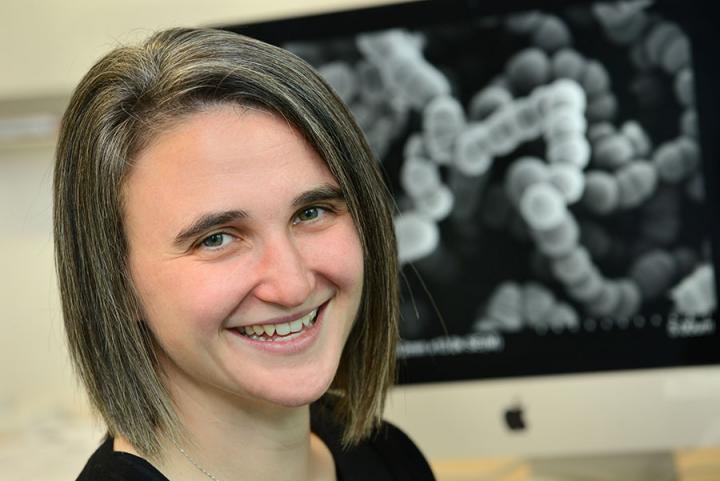Dr Nicola Lynskey on disease-causing bacteria
Understanding the how one species of bacteria can be responsible for causing disease in humans, cows and fish

Dr Nicola Lynskey has been a Career Track Fellow and molecular microbiologist at the Roslin Institute since September 2019. In this interview she tells MSc Science Communication student Anna Purdue about the study of disease-causing bacteria and how it can impact various animals, including humans.
Could you tell me about your work in a nutshell?
I work on streptococcal pathogens, which are bacteria that can cause disease. My work involves trying to understand how these bacteria control gene expression, and how they regulate which proteins they are producing. This impacts the interaction with the host they infect, whether or not they are better able to evade the immune system and whether or not they are able to colonise. I work on one species in particular called group B streptococcus, which is actually able to affect multiple different hosts including humans, cows and fish. The research I do involves understanding how this bacterium is able to affect and cause disease in a diverse array of hosts.
Why did you decide to become a scientist and what drew you to this particular field of research?
My undergraduate degree was in Biological Sciences, and during this I was able to do a research project for a few months. I really enjoyed having my own little thing to work on and being able to be more independent in the lab. I actually felt like I was doing science.
After this, I decided to do a Masters in Molecular Medicine which involved quite a big research project component. My Masters course touched a lot of different topics, but I really enjoyed the microbiology lectures in particular. I chose a project that focussed on microbiology and I’ve stayed in the same field ever since.
Could you tell me about a real world application of your work?
The science that I do is quite ‘basic’; it’s quite fundamental. However, some aspects of this work can be used to inform things like vaccine design, or understanding how certain bacteria react to drugs. The other side of what I do involves trying to develop better models to study how the bacteria interact with the host, and those models could be used to help facilitate drug trials or vaccine studies.
Why did you decide to work at the Roslin Institute and what do you like the most about working here?
I was in the United States previously and was looking to move back home. I really wanted to work somewhere that had a strong microbiology department, but as one of the bacteria that I’ve chosen to work on is a veterinary species it definitely made sense to be somewhere where animal science was a primary focus. The Roslin Institute is a great place to do host genetic research and genetic screens.
The Institute is a gorgeous place to work - the view is fantastic! It’s also a really friendly place. Everyone is really helpful.
What are the challenges you experience as a scientist?
I guess one of the kind of obvious challenges is when the science just doesn’t work, and trying to find a path around that. Another one is being able to secure enough funding to be able to do the science that you want to do. I’d imagine that most scientists would say the same.
What would you be doing if you hadn’t become a scientist?
I feel like I’ve ended up doing science because every time I’ve gone to the next step I’ve enjoyed it more. However, I did nearly choose a Spanish degree so maybe if I wasn’t a scientist, I would be travelling the world or something exciting like that!
Related links
Dr Jo Stevens on bacteria and the immune system
Bacteria overcome hurdles to jump between species
Chicken study probes resistance to food bug


